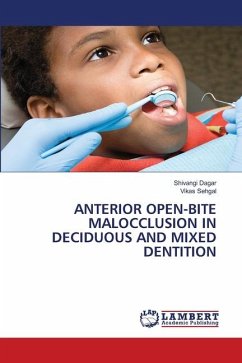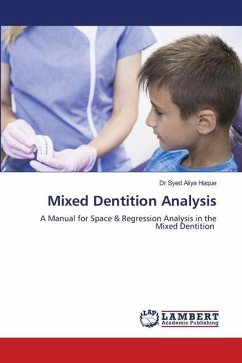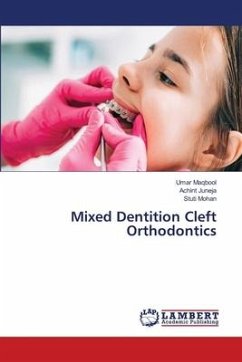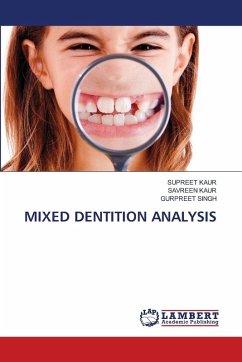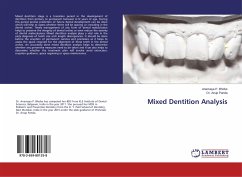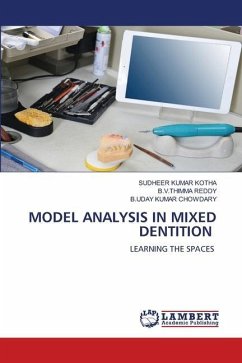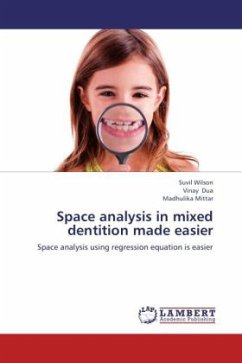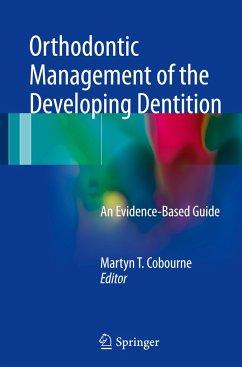
MIXED DENTITION ANALYSIS
Unlocking Smiles: The Art and Science of Mixed Dentition Analysis
Versandkostenfrei!
Versandfertig in 6-10 Tagen
40,99 €
inkl. MwSt.

PAYBACK Punkte
20 °P sammeln!
Mixed dentition analysis is an essential diagnostic approach used in orthodontics to assess the dental arch space and predict the size of unerupted permanent teeth during the transition from primary to permanent dentition. This period, typically occurring between the ages of 6 and 12, involves the simultaneous presence of primary and permanent teeth, necessitating accurate space assessment to prevent malocclusion. Various analytical methods have been developed and each employing specific calculations and tools to estimate the mesiodistal widths of unerupted teeth based on measurements of erupt...
Mixed dentition analysis is an essential diagnostic approach used in orthodontics to assess the dental arch space and predict the size of unerupted permanent teeth during the transition from primary to permanent dentition. This period, typically occurring between the ages of 6 and 12, involves the simultaneous presence of primary and permanent teeth, necessitating accurate space assessment to prevent malocclusion. Various analytical methods have been developed and each employing specific calculations and tools to estimate the mesiodistal widths of unerupted teeth based on measurements of erupted ones. These methods utilize dental casts, radiographic analysis, and regression equations to provide reliable predictions, guiding effective treatment planning. Recent advancements have enhanced the accuracy of these methods through digital imaging and three-dimensional analysis, offering more precise assessments. Understanding the importance of early diagnosis and intervention, mixed dentition analysis aids in timely orthodontic decisions.







